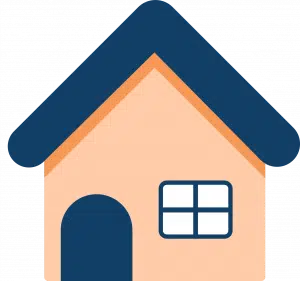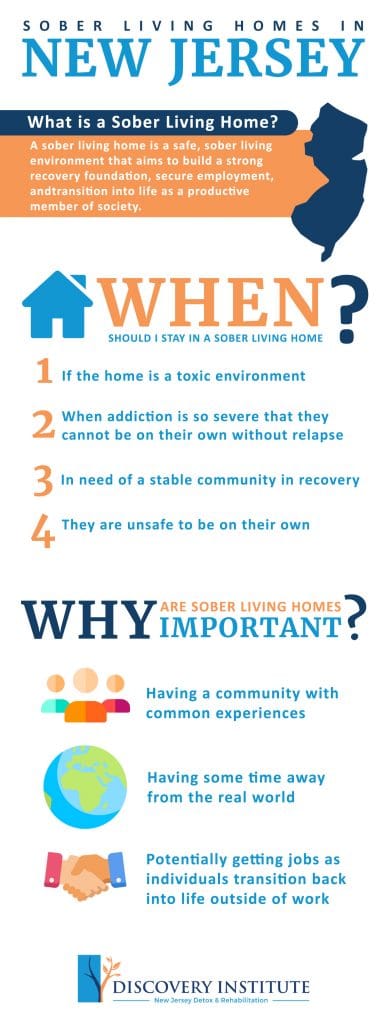Sober Living
A sober living environment gives recovering individuals a strong foundation, secure employment, and transition into life as a productive member of society.
If you or a loved one are struggling to recover from an addiction, you may find it extremely difficult to go through the recovery process on your own. This is because recovery was never meant to be done alone. Recovery should always be done within the context of community, whether that be your family, friends, or co-workers. After all, we all need people we are able to count on.
That being said, if you are in the early days of recovery, it may not be safe, suitable, or effective to be at your home. This is why sometimes we need sober living homes. In this piece today we will be discussing the benefits of sober living homes, when we would need them, and how to make the most of your treatment experience. If you or a loved one are struggling with an addiction, consider getting treated in a sober living home.
What is a Sober Living Home?
 Men will find a safe, sober living environment as they build a strong recovery foundation, secure employment, and transition into life as productive members of society. Through their stay in the halfway house, the men attend 12-step recovery meetings, didactic lectures focusing on living a drug and alcohol-free life, as well as groups and individual therapy focused on maintaining a strong drug-free lifestyle in an outpatient environment. The men develop life skills to assist them with living independently. With the guidance of their clinician, the halfway house men get connected with mental health providers, doctors/clinics, and other outside resources as needed by the individual. Some men transition into the halfway house from Discovery’s residential program some come from other walks of life. All come with the common goal of completing as better men than when they began their journey.
Men will find a safe, sober living environment as they build a strong recovery foundation, secure employment, and transition into life as productive members of society. Through their stay in the halfway house, the men attend 12-step recovery meetings, didactic lectures focusing on living a drug and alcohol-free life, as well as groups and individual therapy focused on maintaining a strong drug-free lifestyle in an outpatient environment. The men develop life skills to assist them with living independently. With the guidance of their clinician, the halfway house men get connected with mental health providers, doctors/clinics, and other outside resources as needed by the individual. Some men transition into the halfway house from Discovery’s residential program some come from other walks of life. All come with the common goal of completing as better men than when they began their journey.
When Should I Stay in a Sober Living Home?
There are several cases in which individuals should be in sober living homes. People may need to live in a sober living home if:
- They feel that their home is a toxic environment for them
- Their addiction is so severe that they cannot be on their own without relapse
- They need a stable community in recovery
- They are unsafe to be on their own
These are all reasons to pursue sober living homes, and each will be discussed in depth. Sober living homes are reserved for a few cases. Sometimes home is too toxic a place for individuals who are struggling with substance use disorder. In these cases, there may be another person who is triggering the struggling individual with guilt, pressure, emotional manipulation, etc. But, sober living homes can provide a time and place for the person to get treated without having to deal with the toxicity at home. It may even help the toxic place or person to get help themselves.
Fighting Addiction Alone
In other cases, some substance abuse disorders become so severe that the person is no longer able to be on their own. The addiction may become so severe that they are unable to function without the substance, and are likely to overdose, or have already overdosed. Sober living homes provide a period of time for individuals to heal. Sober Living is for those not yet ready to embrace life outside of treatment and needs help to reintegrate back into normal life.
Isolation is a real problem, and contributor, to addiction. In certain cases, addiction can make people feel alone. Maybe they alienated themselves from loved ones due to their addiction, or vice versa. In these cases, sober living homes can help provide the person in recovery with a community that knows what they are going through. This community is able to empathize with the individual who is struggling with substance use disorder. It can also provide the intimacy the individual needs in order to open up and embrace treatment. Now that we have looked at the times when sober living homes are necessary, it is pertinent to move on to the benefits.
Why Are Sober Living Homes Important?
 There are numerous benefits to sober living homes which will be explored below, including the following:
There are numerous benefits to sober living homes which will be explored below, including the following:
- Having a community with common experiences
- Having some time away from the real world
- Becoming educated on substance use disorders
- Potentially getting jobs as individuals transition back into life outside of work
- Having fun is sobriety
In some cases, as we discussed above, it is necessary to step away from the real world in order to transition back into society. Since addiction is a disorder, it is not as easy as many people might think to simply quit cold turkey. It’s difficult to transition back into a “normal” life with willpower alone. The person who struggles with addiction has an imbalance in their brain. If their highest form of pleasure before taking substances was 100, they had been experiencing double that with their substance abuse. Thus, ordinary fun, pleasure, enjoyment, etc., no longer feels like anything. It is necessary to step away, have time for becoming sober and understanding how to move forward, then finally be ready to step back into society.
More About the Benefits of Sober Living Environments
Sober living homes also can help to recover individuals get jobs. Once the person’s addiction becomes so severe, they are unable to function normally in their careers. Thus, many times, individuals find themselves without a job, and possibly a pretty severe mark on their record (especially if the individual has had a DUI, broken the law, etc.). That is where sober living homes come in. The professionals at this home are employed also to get the individual back on their feet. This means that they can help get people a new job and so on.
Becoming more educated on the subject of addiction is an incredible way to further one’s treatment. In sober living homes, it is necessary to receive therapy, treatment, and education regarding what is going on with them. Alongside this, it is possible to seek group therapy for families. Many are now considering addiction to be a family disease, and in order to properly get treated, the whole family must get treated. Utilizing all these different therapies, programs, and so on are incredible ways to maximize your treatment.
Ways to Make the Most of Your Community
When going through recovery, it is important to make the most of the people around you! Some of the ways we can do this include:
- Engaging in group therapy
- Working through holistic care together
- Exercising together
Group therapy is an incredible tool in recovery. Sometimes people are averse to this since it is hard to admit the things we have done while under the influence. However, when we are in a group setting it helps us to empathize with each other, feel like we are not alone, and provide us with the opportunity to have accountability in recovery.
Holistic care is a great way to engage in holistic practices with others. Group meditation is one example, as well as group yoga, etc. Holistic care focuses on the whole person, mind, body, and soul. It is an incredible way to pursue alternative forms of treatment. Doing this in the context of others is a great way to bond, develop intimate relationships, and get naturally good experiences together.
Finally, consider exercising with a group. Many dislike exercise, but doing it recreationally and on your own terms is a great way to build relationships and get natural happiness. Research has shown that being in nature, cardio, and exercise all release feel-good chemicals in our brains. Doing this with a group of people is one of many ways to maximize your experience in sober living homes. Consider any of the above methods to help treat yourself with others.
Here at The Discovery Institute, we can help find you a Sober Living home. We work with many sober living facilities across the state and have a detailed vetting process, ensuring that you find the best sober living home for your needs.
Get the Help You Need Today!
Are you or a loved one struggling with addiction? Is it time to intervene in your loved one’s life and help them take it back? We at the Discovery Institute want to be a part of the process, and be here for you as you take your life back from addiction. You do not only owe it to others, but you also owe it to yourself to get the treatment you need. A very small amount of individuals who need treatment actually get it. However, with one phone call, you can be in the minority of those courageous enough to take their lives back. The road to recovery is not easy, but you do not have to do it alone. It is never too late to get help for addiction; contact us today.
Dr. Joseph Ranieri D.O. earned his BS in Pharmacy at Temple University School of Pharmacy in 1981 and His Doctorate Degree in Osteopathic Medicine at the Philadelphia College of Osteopathic Medicine in 1991. He is Board Certified by the American Board of Family Medicine and a Diplomate of the American Board of Preventive Medicine Addiction Certification. Dr. Ranieri has lectured extensively to physicians, nurses, counselors and laypeople about the Disease of Addiction throughout New Jersey and Pennsylvania since 2012.



